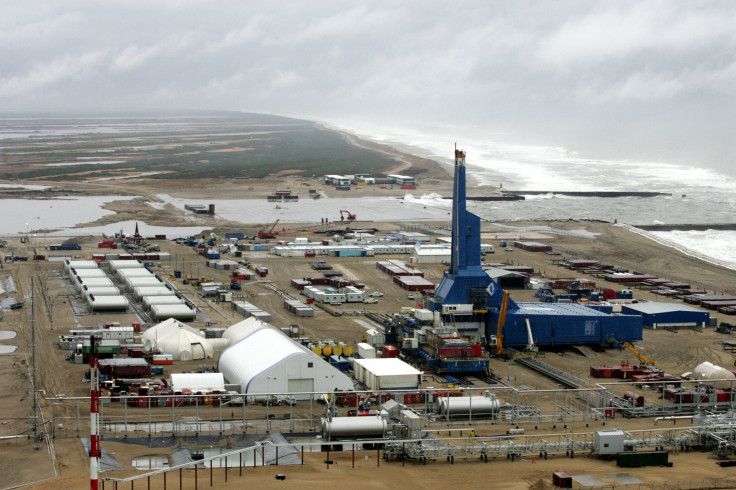Russia's Fight With Oil: Iran's Expected Return To The Global Oil Market May Hurt Russia's Revenue Stream

Earlier this month, Iranian President Hassan Rouhani visited the United Nations in a move designed to improve ties between the Persian nation and the West. As a result, Iran hopes sanctions against the country will be lifted. Russia, whose economy relies heavily on oil and high oil prices, stands to lose a great deal if Iranian oil is reintroduced to the market, potentially reducing the price of oil globally.
The Islamic Republic is keen to make use of its oil revenues as it has been excluded from the SWIFT banking mechanism since 2012, making the country a global financial backwater and limiting their ability to send or receive money. The revenue from what little oil it has been able to export has been bartered for staples like produce due to international sanctions, which ban hard cash from entering the country. This is one reason Iranian supermarkets are full of Chinese produce.
Businesses have been unable to get money in or out of the country without going through the banking system. Instead, many have to use unscrupulous middlemen who smuggle cash across borders and then wire-deposit it to pay for goods that Iran needs, but this practice was stopped after banks and businesses outside of Iran were fined billions of dollars by the U.S. Department of Justice and the Office of Foreign Assets Control (OFAC).
Under former President Mahmoud Ahmadinejad, Iran defiantly said the sanctions did not affect life in Iran, but in recent months it became clear that the sanctions have taken a toll. Rouhani has admitted that the country desperately needs to rejoin the financial world to sort out its economy and regain oil revenue. It’s estimated that Iran will be able to collect in excess of $100 billion, which would allow it to clear the huge internal debts that it has accrued, according to an August report from Democratic Underground.
If Iranian sanctions are lifted in the coming weeks -- once the government lets European inspectors into the country to look at its nuclear program -- what will this mean for other countries?
Since 2008, Russia has dominated Eastern European markets. But as Europe begins to recover, deleveraging Russia's government finances and banking sectors, the former Soviet state has faltered somewhat, leaving it in a very vulnerable position, one made worse by the expected return of Iranian oil.
Russia’s government is over-reliant on high oil prices, which exist in part due to the absence of Iranian oil. But with the potential return of Iran’s supply to the global markets, crude prices could start to fall.
Russian oil has performed better than normal this year, and it is certainly providing a huge economic boost to the country since oil and gas account for about 75 percent of Russia’s exports and almost half of its total revenue. Added to that is the rise in car ownership in China, which has grown by 50 million cars in the last five years, helping sustain and grow Russia’s oil exports.
And despite the threat of competition from Iran, there's still good news for Russia's oil sector. Since a drop in April, crude oil prices have rising steadily to its current price of approximately $110 per barrel. Some analysts expect the price to climb to $145 per barrel due to ongoing issues in Syria, but then again, Syria’s potential departure from the oil market as an exporter could be offset by the return of Iranian oil, and no change in price will occur.
On the other hand, who is still buying? Oil demand in rich industrial nations has stagnated, Europe is still finding its feet after five years of turmoil -- its oil consumption dipped to a 22-year low -- and the U.S. has recently overtaken Saudi Arabia as the world’s biggest oil producer, which means it needs to buy less imported oil. Even a 6-year high of 16 million auto sales in August made almost no difference in oil imports, because guess what -- Americans are replacing their old gas guzzlers with more energy-efficient cars.
As a result, Russia relies on oil consumption primarily from emerging markets, but what will happen when quantitative easing in the United States ends? Interest rates will go up, and those emerging economies will start to struggle -- unless they are able to sort out their own economies between now and the day the Federal Reserve eases off the monetary gas pedal. When that happens, the flow of Russian oil could dry up along with its primary source of revenue.
The fact is, Russia has to diversify its oil clients and develop new revenue streams if it is to survive an unpredictable and fluctuating oil market. Of course, it all depends on what happens with Iran.
© Copyright IBTimes 2024. All rights reserved.






















